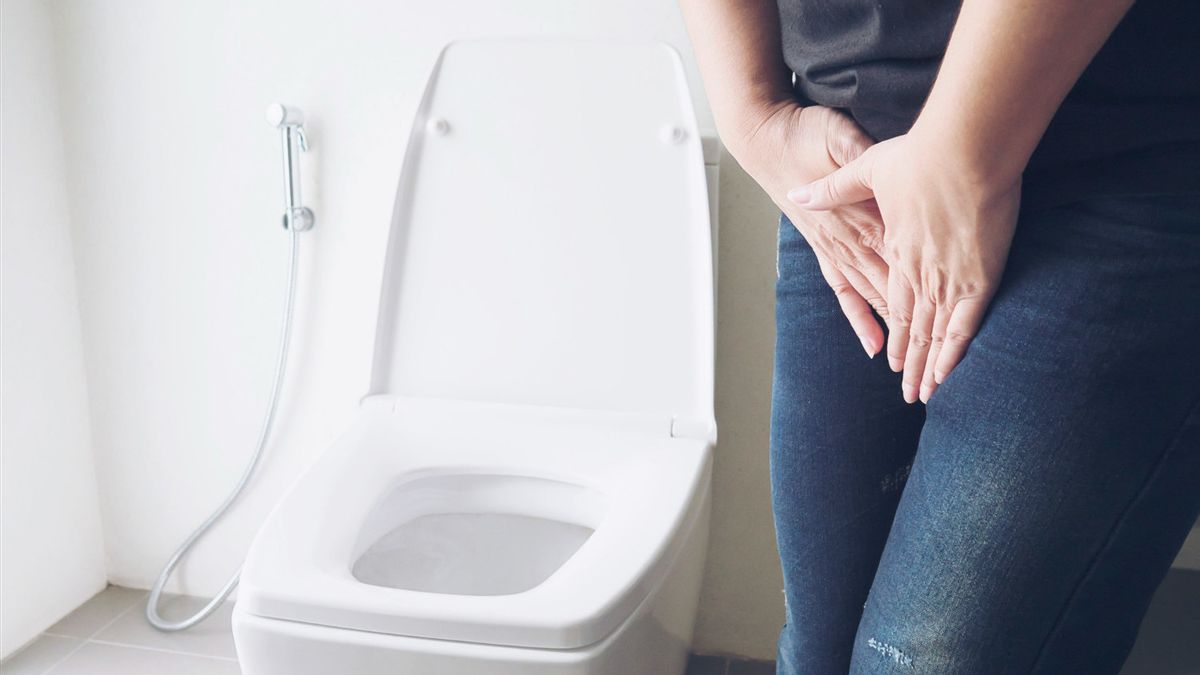JAKARTA – Frequent urination or urination at night, turns out to be a sign of health symptoms. According to a recent study conducted in Japan, urinary frequency at night may be linked to hypertension and high salt intake.
The need to urinate at night is called nocturia. At night, urinating too often is a sign of high blood pressure. Quoting Medical News Today, Tuesday, February 8, nocturia is a condition in which people wake up at night because they want to urinate. Common causes of frequent nighttime urination include high fluid intake, sleep disturbances, and bladder obstruction.
In general, people without nocturia can sleep up to 8 hours without having to urinate. But some may need to wake up during the night and still be considered within normal limits. A person with nocturia, can wake up 2-6 times during the night.
Nocturia is actually not only related to hypertension. Other conditions characterized by nocturia include bladder prolapse, prostate tumors, and other disorders that affect sphincter control. Pregnant women, people with heart failure, liver disease, and diabetes can also experience nocturia.
The effect of age is also related to nocturia. According to a 2003 report from the National Sleep Foundation, about two-thirds of respondents aged 55-84 experience nocturia at least a few nights per week.
According to studies, reducing salt intake can help with nocturia. The research team presented the results of their study, finding that urinating at night is linked to excessive salt intake and high blood pressure.
"Our study shows that if you need to urinate at night - called nocturia - you may experience increased blood pressure and/or excess fluid in your body," said study author Dr. Satoshi Konno, from the Hypertension Division at Tohoku Rosai Hospital in Sendai, Japan.

Previous studies have shown that excessive daily salt intake and hypertension have a negative impact on nocturia. Eating habits, meaning it needs to be considered carefully. Because control of salt intake is important for the treatment of nocturia.
The study data corroborate this finding. A total of 3,749 residents of Watari City filled out a questionnaire and showed that getting up at night to urinate was associated with 40 percent of experiencing high blood pressure and the risk of hypertension. Doctor Konno said that the results did not prove a causal relationship between nocturia and hypertension.
This means that lifestyle, salt intake, ethnicity, and genetic background are also counted as influencing factors. Doctor Mutsuo Harada, coordinator of the press conference, said that early detection and management of hypertension is very important. The reason is, the average Japanese people's salt intake is about 10 grams per day. This intake is considered excessive and states that hypertension is a national disease in Japan.
Specifically for the general public outside Japan, it is important to evaluate and understand the causes of nocturia. Because it is not only motivated by hypertension and salt intake, routine and thorough health checks need to be carried out.
Barbara Casadei, professor and president of the European Society of Cardiology (ESC) notes that more than 1 billion people have high blood pressure worldwide. High blood pressure is a global cause of premature death, accounting for 10 million deaths in 2015.
Casadei recommends living a healthy lifestyle, including limiting salt intake, eating healthy, reducing alcohol consumption, exercising regularly, controlling weight, and quitting smoking.
The English, Chinese, Japanese, Arabic, and French versions are automatically generated by the AI. So there may still be inaccuracies in translating, please always see Indonesian as our main language. (system supported by DigitalSiber.id)













